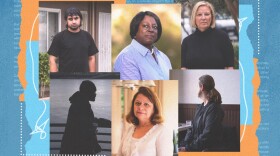Gov.-elect Jerry Brown is keeping quiet about his plans to tackle a $28 billion budget deficit, despite reports that he plans to couple deep spending cuts with a special election next year to extend temporary tax increases.
Brown adviser Steve Glazer said Thursday that the incoming governor's scheduled budget release is the appropriate time for him to lay out his plan in full. The governor has to propose a budget for the 2011-12 fiscal year by Jan. 10.
"That's the requirement that's in place for the governor, and we're going to follow it," Glazer said. "We certainly have been consulting with legislators and stakeholders for the past six weeks."
The Los Angeles Times and The Sacramento Bee, citing unnamed sources, have reported that Brown will propose extending a variety of temporary tax hikes that are set to expire by July. The Bee also reported that Brown will propose cutting an additional $10 billion from state government in exchange for the extensions.
The reports said the new governor will seek to shift more tax revenue to local governments in exchange for their taking on more responsibility for services.
Glazer would neither confirm nor deny Brown's interest in extending the taxes and declined to discuss the details of any cuts.
"The cutbacks are going to be very significant at all levels of state government," he said.
California temporarily raised the state income tax rate by 0.25 percent, increased the fee for licensing vehicles from 0.65 percent to 1.15 percent and hiked the sales tax by 1 percent as part of a February 2009 budget deal cut by Gov. Arnold Schwarzenegger and lawmakers.
The state also reduced the amount taxpayers can claim on a dependent care credit to the federal level of $100 instead of $300.
Voters were asked in May 2009 to extend those temporary taxes by two more years but they refused, rejecting Proposition 1A. Last November, voters also rejected an $18-a-year increase in the vehicle license fee to fund state parks, even though passage would have allowed free park admission for all vehicles with a state license plate.
Placing a tax measure on a special election ballot in 2011 will require a two-thirds vote of the Legislature and thus will need some support from Republicans, who are in the minority in the Assembly and Senate.
Senate Minority Leader Bob Dutton, R-Rancho Cucamonga, said Republicans prefer to cut low-priority services and streamline programs before broaching tax increases. He said asking for more money Dutton said he hasn't been briefed on whatever proposals Brown is considering, but said voters are in no mood for even small tax hikes.
"Even if you give the majority party more money, they aren't going to fix the problem. It's a matter of trust here," Dutton said. "They just keep piling on. They don't have a lot of credibility with me right now."
Assembly Minority Leader Connie Conway, R-Visalia, was equally leery of any attempt to close the deficit through higher taxes.
"Republicans and Democrats must respect the will of the voters- who have rejected recent attempts at the ballot box to raise taxes," she said.
Brown, a former two-term governor, has pledged to do everything he can to get the state's finances back on track but warned that the solutions will be painful.
California faces a budget shortfall of $6 billion in the current fiscal year and more than $19 billion in the fiscal year that will begin July 1. Brown released figures showing the state will lose another $2.7 billion from federal estate tax changes, swelling the shortfall through June 2012 to $28.1 billion.
During his first term in office more than two decades ago, Brown spoke of an era of limits in government and did not favor tax increases.
"I'm going to try, as long as I'm governor, to avoid taxes unless they are absolutely required by the public necessity," he said in September 1976.





